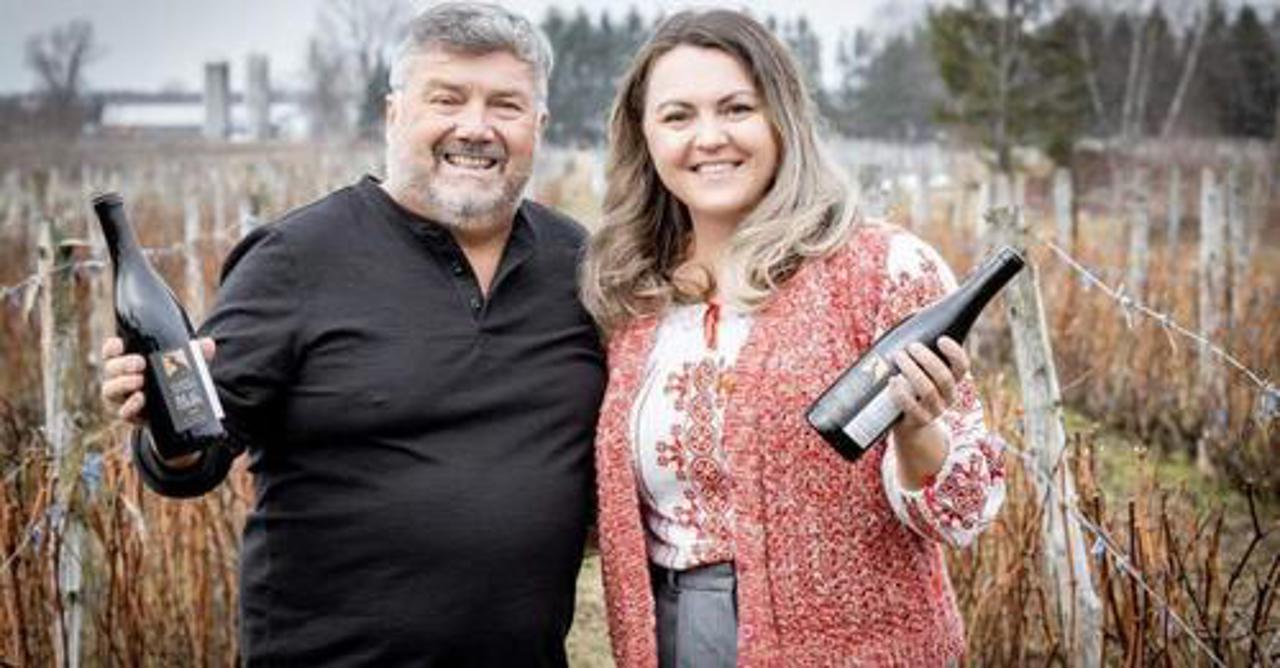Moldovan immigrant brings home wine to Canada
Ludmila Terzi, a native of Gotești, Moldova, emigrated to Canada in 2009. Ten years later, she began importing Moldovan wines, and recently she purchased a vineyard in Quebec and began producing Canadian wine with Moldovan roots.

Terzi did not grow up surrounded by winemakers, but her passion for wine runs in her veins. She dared to experiment and study, and last fall she produced her own wine from the 3.5 hectares of grapevines she owns.
“It takes a titanic effort to make wine in Quebec,” Terzi says. “It’s totally different to care for a vineyard in Canada. The cold climate, the low temperatures, the spring of about two weeks and the rather short summer all leave their mark on the quality of the wine. In winter, European grape varieties require special attention. To withstand temperatures of -30 to -40 degrees Celsius, the entire vine is lowered to the ground and wrapped in a special geotextile cloth.”
Before becoming a wine producer in Canada, Terzi managed to build a small business importing wines from Moldova. It all started simply because she couldn’t find her favourite wine in the host country.
“I came to the conclusion that we have a formed olfactory baggage and we will always look for that taste with which we are used to. My husband once told me not to look for wine to my taste anymore, it is in Moldova. Thus, the idea of importing wines arose,” says the compatriot.
Terzi works with small Moldovan wine producers and does not consider the wine regions when choosing a wine. She says it is a long way from our country to the glasses of Canadians.
“In the province of Quebec, as in other Canadian regions, a wine importer cannot work directly with the supplier, you must pass the goods through the State Alcohol Corporation, which controls the import of alcoholic beverages. The wine we bring from Moldova is stored in the company’s warehouse. If it exceeds the 6-month stay period and has not been sold, it means either the agent does not know how to work or the wine is not of quality,” Terzi said.
Terzi’s company in Canada importing Moldovan wines did not provide a stable income, but she was prepared for such a situation.
“In the host country, I graduated with a second degree, commerce. And I learned that when you start a business, you don’t reap the rewards immediately. They come in time. Only now, after five years of operation, my business has started to make a profit,” says our compatriot.
Canada is not a wine-producing country. More than 80% of the wine Canadians consume is imported. Local wine is produced only in a few regions where the sun appears more often in the sky.
“Canadians are very open as consumers. They prefer red wines, but the trend in recent years shows that whites are starting to climb the top. Among Moldovan wines, they prefer those from the local variety ‘rară neagră’. What is traditional and appreciated at home is also valued far and wide,” Terzi said.
Far from home, Ludmila often wondered if the decision to emigrate 14 years ago was the right one. She hasn’t found an explicit answer yet. In the meantime, she surrounds herself with things and customs that remind her of home. She built a brick oven in the winery yard and is ready to treat everyone to pies, according to a recipe she learned from her grandmother.
“I built the oven with the help of my mother, a friend who came to Canada, and with the help of my parents, over the phone. I found the right clay on one of the plots in the vineyard, I added wheat straw, and in a few days, I baked pies,” Ludmila told us.
Before becoming a winemaker in Canada, Ludmila Terzi was a telecommunications engineer in Moldova. In Quebec, she earned a second degree, opened business after business, but still, sometimes, she still feels like the ground is slipping out from under her. And then, she returns to her roots, to everything that builds and defines us.






